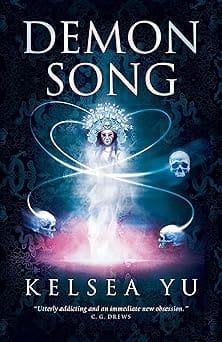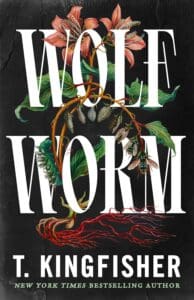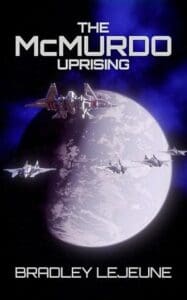
Synopsis:
Places like this have a history. Desires. And this one is famished.
Megan and her mom are on the run after narrowly escaping the clutches of an abusive man who dragged them from Portland to Beijing. With few options, Megan’s mom turns to an old friend who offers them room and board in Huihuang Opera Theater in exchange for cleaning the ancient building.
Between her rusty Mandarin and constant reminders that she’s an outsider, Megan struggles with loneliness—until she meets Kristy, the glamorous young lead in the operatic adaptation of “The Monkey King and the White Bone Demon”. Soon, Megan’s free time is split between reading a battered copy of the Chinese classic that inspired the opera and her budding new friendship; Kristy’s love of singing brings out Megan’s long-buried ambitions.
But the opera house has its secrets. There are passages within the walls that shouldn’t be there, and the more Megan delves into that old book, the more the myths begin to bleed into real life. As Megan finds it increasingly difficult to separate reality from folklore, she must uncover a decades-old mystery to discover the true, horrifying secret of the opera house before it casts its hungry eyes on her.
Review:
A taut gothic horror novella, Kelsea Yu’s “Demon Song,” is an ink-rendered shriek that echoes down marble hallways, ricochets off of high ceilings and reverberates through rafters. A constant, trembling note that is dissonant enough to make your teeth hurt and your eyes rattle in your head, Yu’s latest is both ancient and present, sharply written and infused with rich Chinese folklore. An intrigue-soaked and suspenseful narrative, spliced with a 16th Century fable, Yu had some big boots to fill after “Bound Feet,” (which I still think about 3 years down the line) but she leaps into them with confidence. Out September 30th from Titan, “Demon Song,” is disquieting, compact, poetic- a truly horrifying night out at the opera.
We follow Megan who has spent most of her life following her mother from state to state, and now they’ve moved once again, fleeing from Portland to Beijing. This time is different though. Megan’s mum Jiā has turned to Wēi, and in return for some housekeeping, he is allowing them to stay at the Huīhuáng Opera House. It’s currently showing “The Monkey King and the White Bone Demon,” and when Megan finds a copy of the source material, she can’t help but become immersed in it. When she’s not reading, she’s with Kristy, one of the singers and now, her only friend. Things are not all they seem; from secret passageways to strange dreams, the Huīhuáng Opera House has a long, bloody past, and should she want to protect herself and her loved ones, Megan must unearth it.
Yu’s command of setting absolutely stole the show for me. The Huīhuáng Opera House is far more than just the stage on which the horror is set. It groans and shifts and settles. Every creaking floorboard, darkened wing, secret room is drenched in atmosphere, and entirely deliberate. The building’s physical decay and shifting structure feels inseparable from the rot at the very core of the novella. A yearning and greed toward and violation of the performers- their art, their ambitions, their autonomy- that I don’t want to spoil for you. The opera house reads like it’s alive, and the deeper it’s explored, the more it appears to be an antagonist.
“Journey to the West,” which was written in 1592 by Wu Cheng’en, follows Tan Sanzang a Buddhist monk who is on his way to retrieve scriptures. He travels alongside three disciples, namely the Monkey King Sun Wukong. He is watched by a demon- the white bone demon, who wants a taste of that Buddhist monk, and disguises herself three times in an effort to do so. Each time she is foiled by Sun Wukong, and yet each time, this violence is mistaken for cruelty and the monkey king is condemned by the monk, before being banished by him. It’s a great allegory about trust, loyalty and how evil does not present itself as such. This is not a story that is referenced so much as threaded into “Demon Song.” We even read Yu’s own retelling of it, which unfolds in tandem with Megan’s own story. Yu draws lines between folklore and modern trauma to create something beautiful and scary.
“Phantom of the Opera,” turns darker still in this magical and melancholic novella. Humming with yearning and heavy with silence, “Demon Song,” is a quiet reckoning with being forced to grow up, finding your place in the diaspora, and more broadly, and to live in a world that demands more than you can give. It’s about the cost of expression, the toll giving yourself away on stage, again and again, takes- displacement and dissatisfaction all threaded through strained relationships, paranoia and distrust. It’s “Gormenghast,” by way of “The Ring,” and it’s haunting.











Leave a Reply